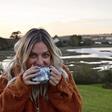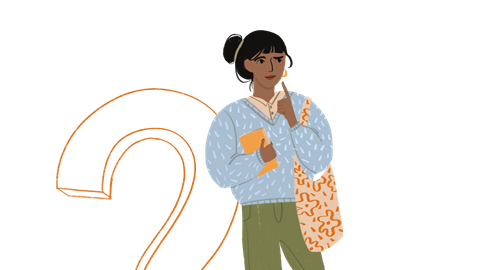Dr Belle Tindall unpacks our society’s confused response to motherhood
I’ve been thinking about motherhood a lot recently. Not necessarily the reality of it, more the institution, you know? The idea, the concept, the identity-marker.
I think the reason that it’s been occupying so much brain-space is twofold. Firstly, I’m getting married in two months, which means that I get asked about becoming a mum a lot. It tends to be the second or third question that comes my way, straight after an enquiry about how the wedding planning’s going and where we’re off on honeymoon.
For the first time in my life, I’m being regularly prompted to think seriously about the prospect of me as a mother.
The second reason motherhood is on my mind is that I’ve been reading Chine McDonald’s phenomenal book Unmaking Mary: Shattering the myth of perfect motherhood* (Hodder & Stoughton), as well as listening to her accompanying podcast, ‘Motherhood versus the machine’.
Our society’s views on motherhood
Chine’s work has prompted me to take a little look around our cultural landscape and notice the way our society seems to feel about motherhood. And, boy oh boy, has that piqued my interest.
In 2024, Kamala Harris was running against Donald Trump to be president of the United States of America – that time still sits within our recent memory, so you may remember that JD Vance infamously called Kamala “a childless cat lady”. He actually said that about her in 2021, and doubled-down on his sentiments when the comment resurfaced last year, saying that Kamala’s lack of children means that she doesn’t have a stake in the country’s future.
In the very same year, Kemi Badenoch became leader of the Conservative party here in the UK. While she was campaigning for the role, Sir Christopher Chope, a veteran of the Tory party, declared that he would vote for Kemi’s male rival because Kemi, as a mother of three, was “preoccupied with her own children”.
So, let me get this straight: according to JD Vance, a childless woman shouldn’t lead the country – why? Well, because she is childless. And, according to Sir Chope, a mother shouldn’t be chosen to run the country – why? Oh, specifically because she is a mother.
Bonkers.
In 2023, Greta Gerwig and Margot Robbie’s Barbie movie was released; it was glamourous, it was nostalgic, it was a moment of celebration for women everywhere. Except, apparently, mothers. British journalist, Mary Harrington, slammed the movie as a feminist flop, highlighting that “pregnant Barbie was expelled from the Barbie universe…liberal feminism has a mother-shaped blind spot”.
In the very same year, Rhianna was given the honour of headlining the Super Bowl halftime show – and she did so, four months pregnant. It could be argued that her burgeoning bump was the star of the show, as she put her pregnant body on display. The Guardian’s headline the following morning was ‘All hail Rhianna for turning a Super Bowl Performance into the greatest pregnancy reveal yet’.
So, in 2023, pregnancy was simultaneously shunned and venerated. Fascinating.
The ongoing tussle
I truly could go on and on, but here’s the bottom line – our culture cannot decide what it thinks of motherhood. You’re damned if you do and you’re damned if you don’t. It villainises it, but also venerates it. It tells us that having and raising children is a woman’s most noble pursuit, and then tells us that it gets in the way. It platforms motherhood and then shoves it in an unseen corner. We’re encouraged to have children; we’re encouraged not to have children. It’s the most feminist thing to do; it’s the least feminist thing to do. It’s right-wing, then it’s left-wing.
And what’s interesting is that this complexity trickles all the way down into our actual, day-to-day, lives. I can see this tussle happening within my colleagues, my family, my friends. And, what’s more, I feel it raging within me.
In her new book, the uber-accomplished Chine McDonald writes about how, before she had children, all of her success was “looked down upon; as if everything I was doing was merely filling up the void of not being a mum”. I know that feeling well. And yet, Chine also writes of how under-supported and under-celebrated the work of being a mum actually is. Once a woman does become a mother, she’s expected to not let it have any real toll on her work life, to not let it slow down her other achievements.
If you have children, that’s an identity marker. If you don’t have them (whether that be by choice or circumstance), that, too, is a dominant identity marker. Bizarrely, ‘not a mum’ is a label attached to my name – and not a neutral one, it’s preferrable in some spaces, suspicious in others. And then, maybe one day, I’ll swap that label for ‘a mum’ – and have to deal with that fact that that, too, is not a neutral title.


































1 Reader's comment